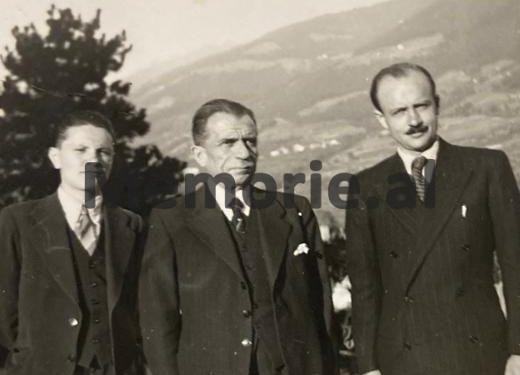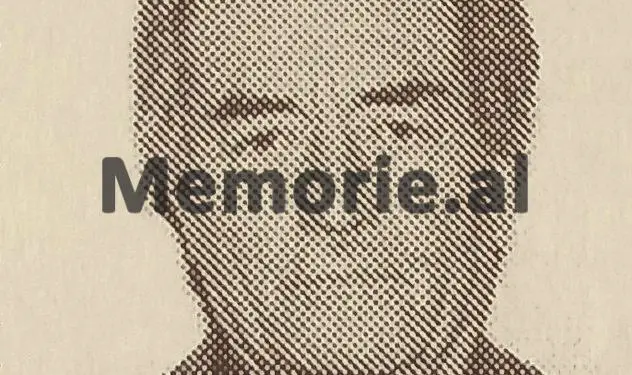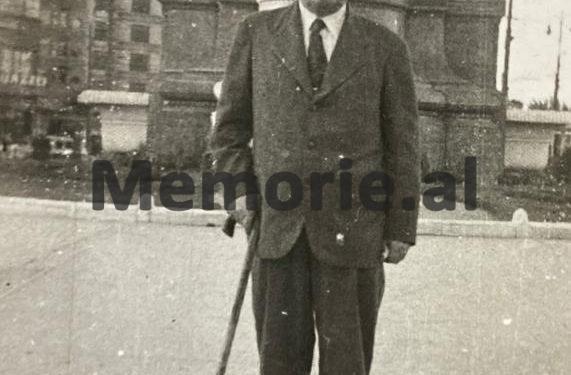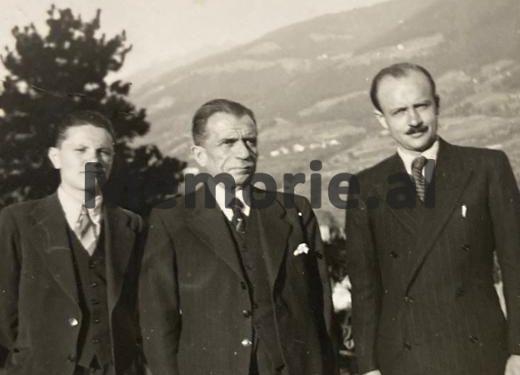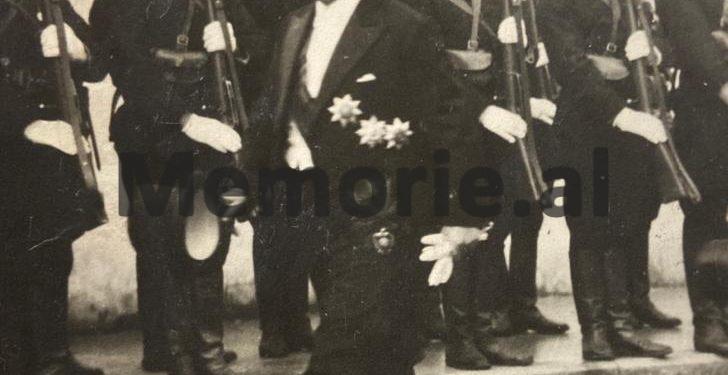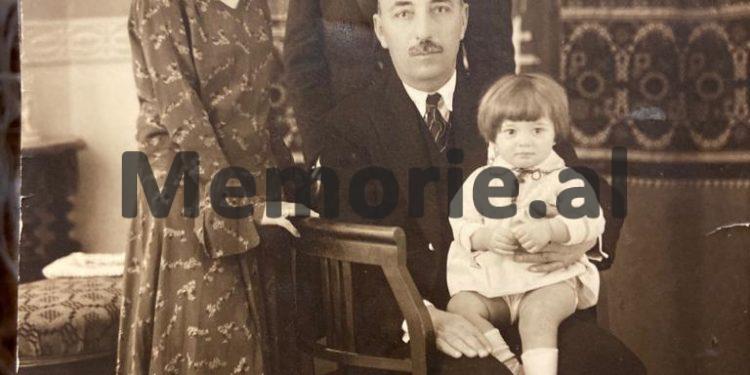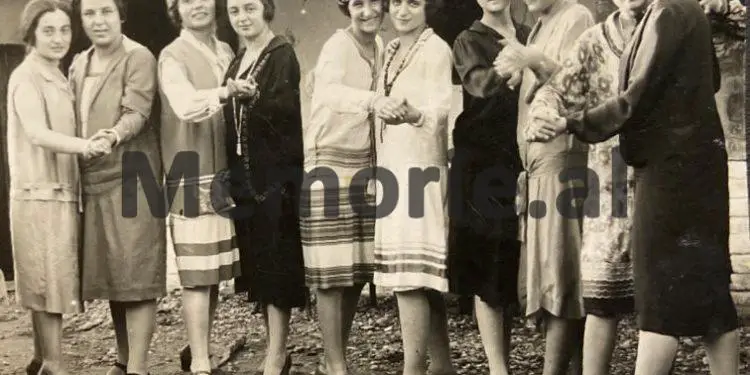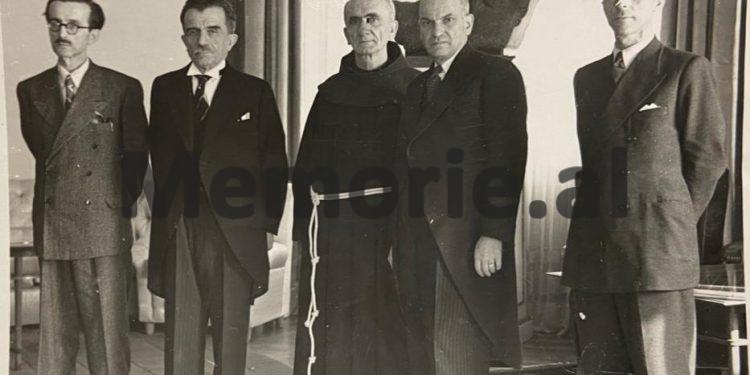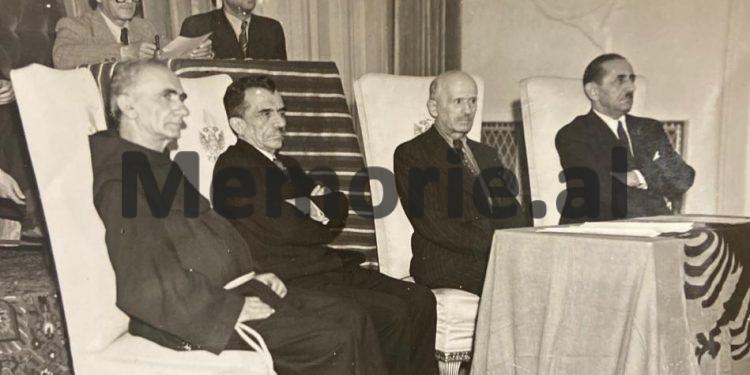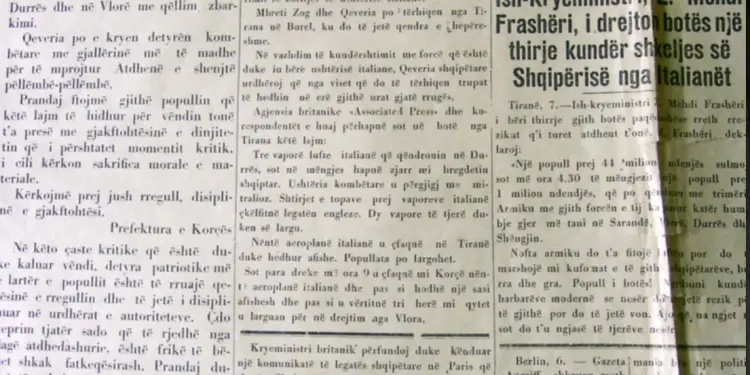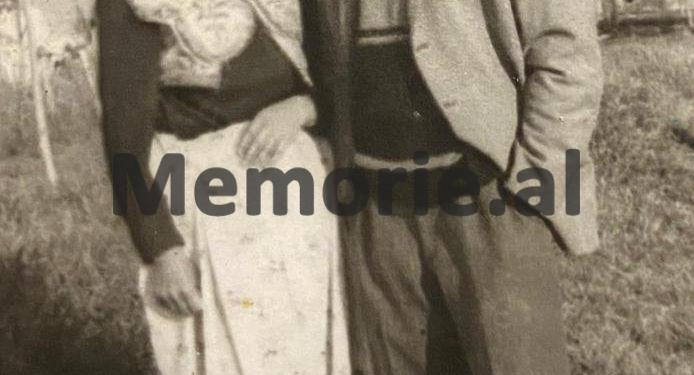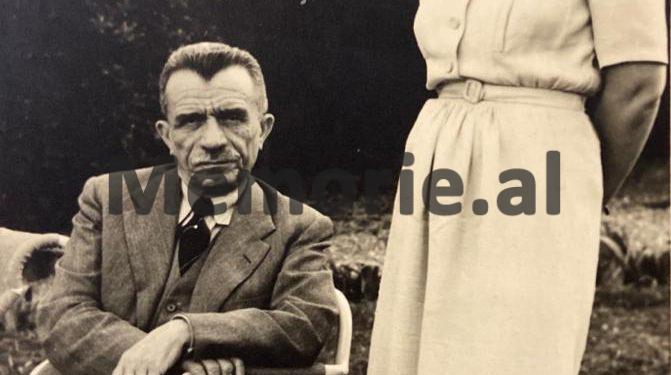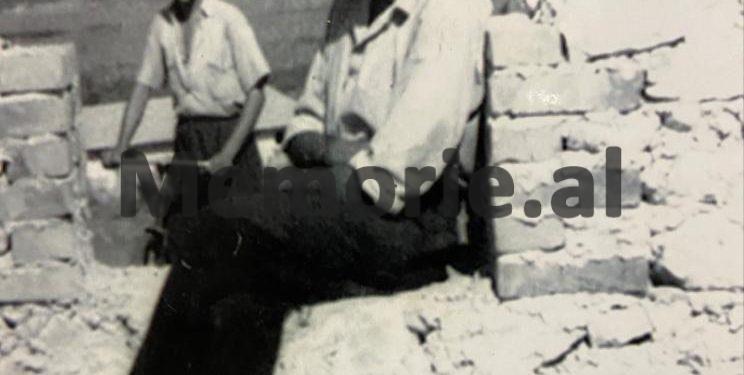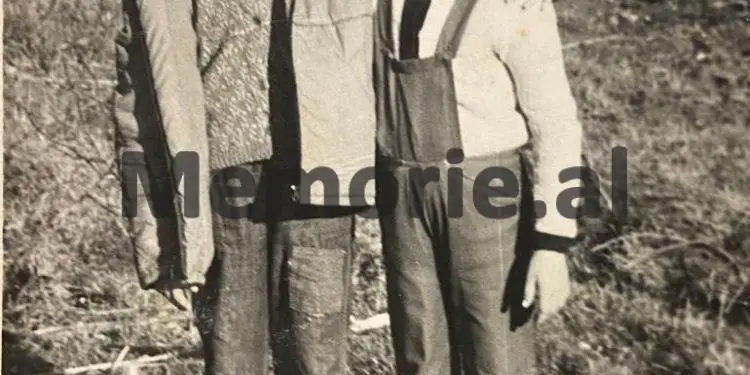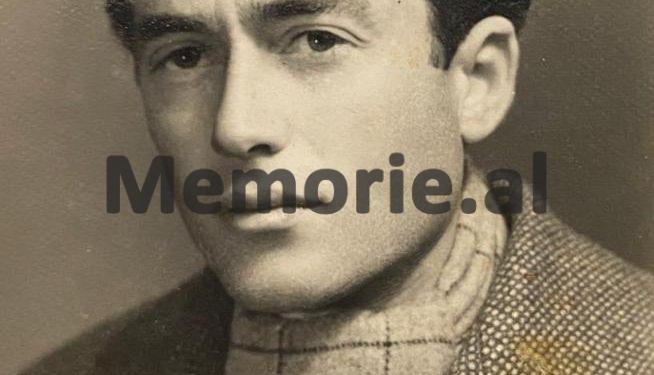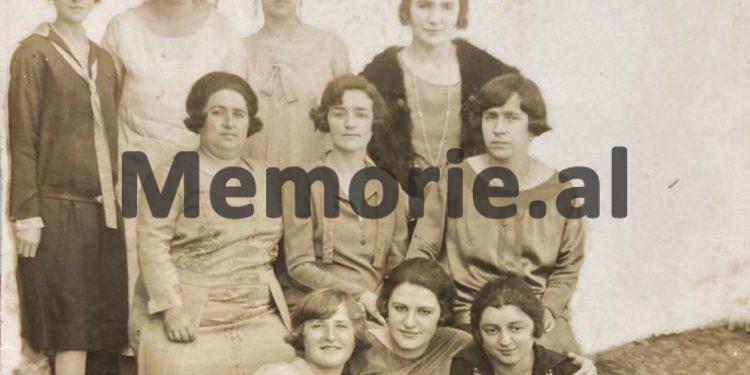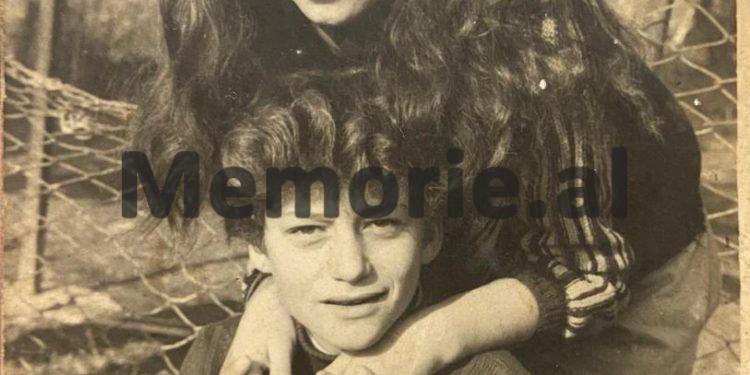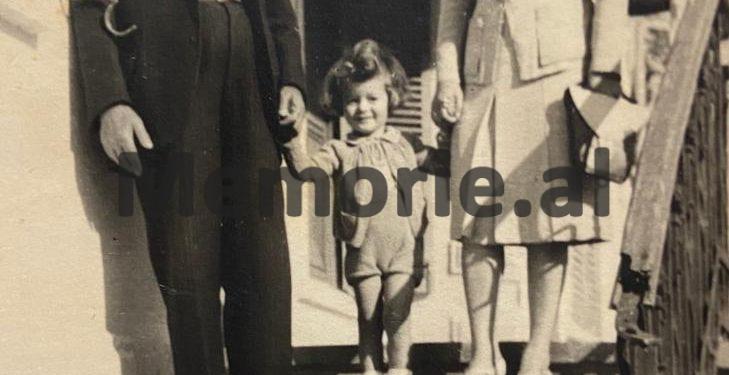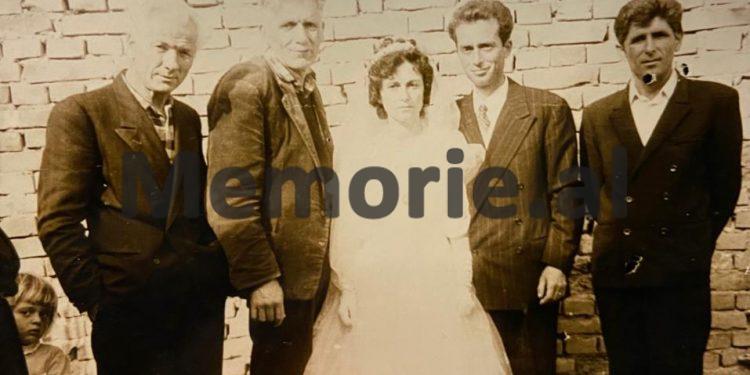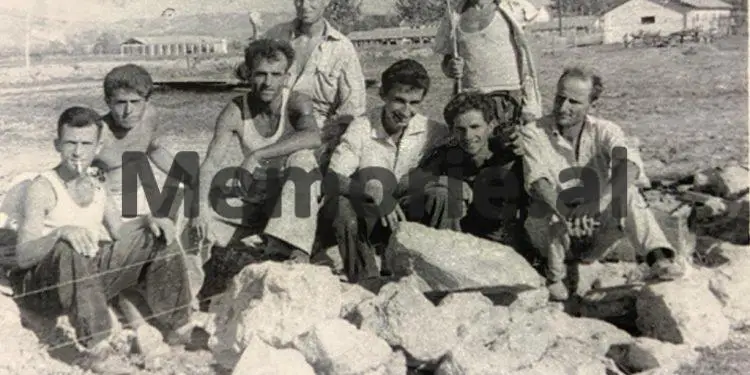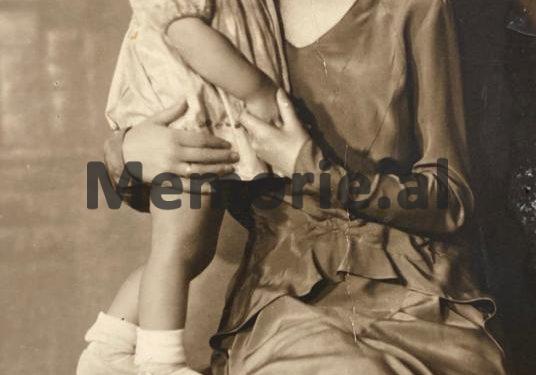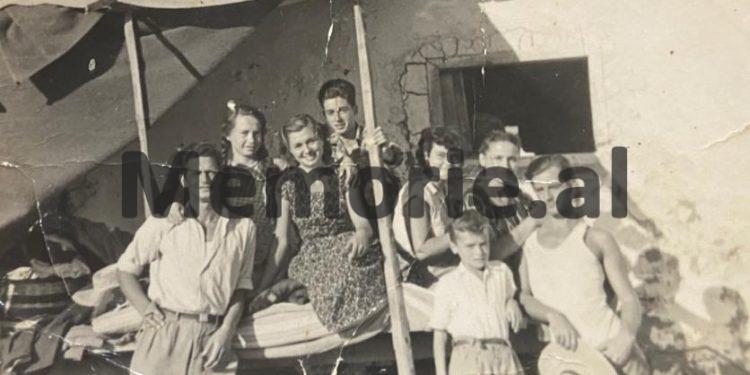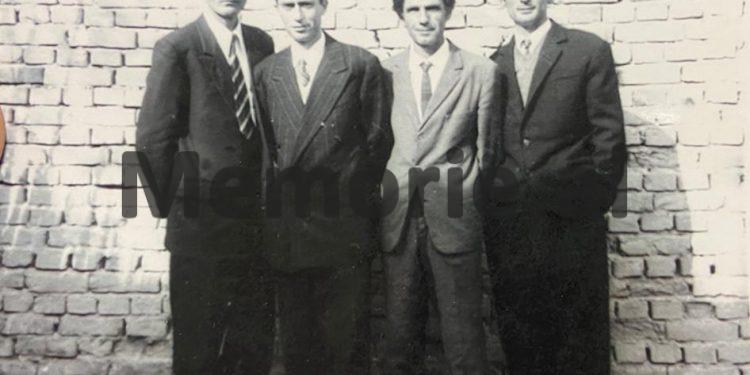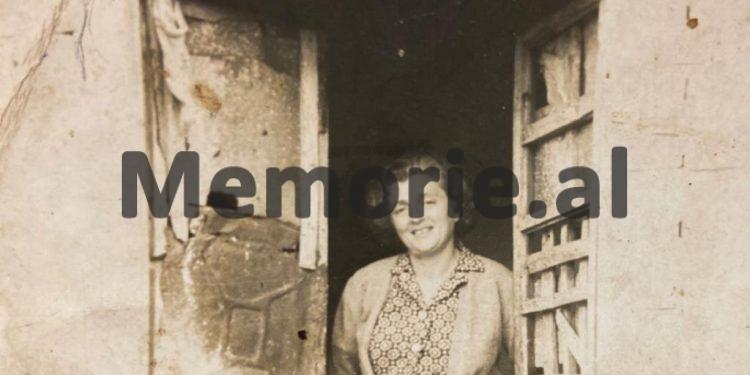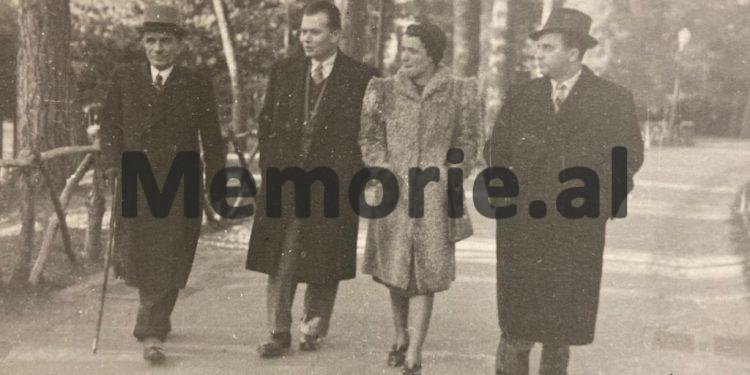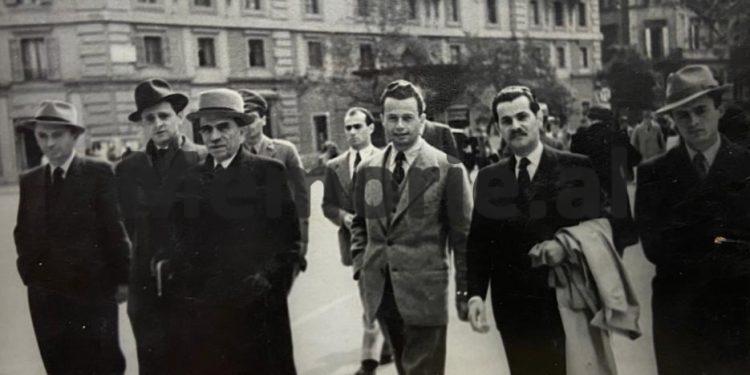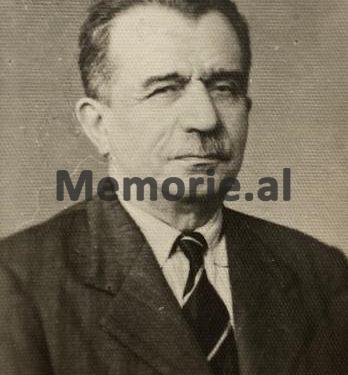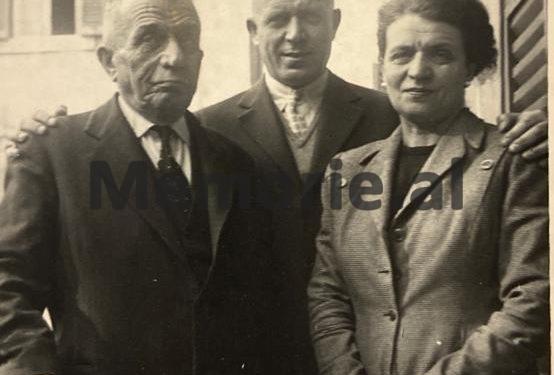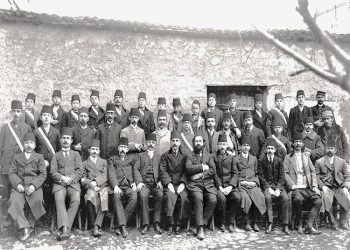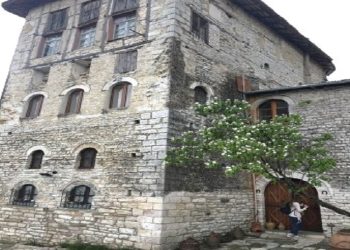Dashnor Kaloçi
Memorie.al publishes the unknown story of Mehdi Bey Frasheri, one of the most famous politicians and diplomats in the history of Albania in the first half of the last century, who represented Albania for 15 years in the League of Nations and before returning to his homeland. for years he had served as the deputy prefect of Thrace and Governor of Jerusalem and all of Palestine. The whole history and political career of Mehdi Bey since the declaration of Albania’s Independence in 1912, until his departure from Albania in November 1944, which comes through the rare testimonies of his nephew, Tefik Çelo, the son of Sheriar, the girl who remained in Albania and with her family, spent all her life in exile in the villages of Myzeqe, where the communist regime of Enver Hoxha had exterminated all the families and descendants of those whom she regarded as “Reactionary families” or “enemies of the people”!
During the years 1943-’44 that my grandfather Mehdi Bey Frashëri was a member of the Supreme Council of Regents, he lived in a house along with the family of Koço Dilo on Dibra Street which they rented to the Petrela family because who had been the residence of the Russian embassy since the 1990s for a long time, Mehdi Bey had issued a German representative, whose rent he could afford to support his family. In the early days of November 1944, when Enver Hoxha’s partisans were preparing to attack Tirana, grandfather Mehdi Bey Frasheri took his wife Nejre (Biçaku) and together with their three children: Vehbi, Medihana, and Ragip, left for Shkodra. and left Albania for Italy. At that time here in Albania, Mehdi Bey was left with only his eldest daughter, Shehriari, who is my mother. ” This is how Tefik Çelo, the son of Mehdi Bey Frashri’s daughter, recalled the departure of his grandfather from Albania, who witnessed the whole family history from which he came, and his grandfather, Mehdi Bey, who is considered one of the personalities. of Albanian politics of the first half of the last century. Who is Mehdi Bey Frashëri and what is the origin of his family, one of the aristocrats of Albania at that time? Where was he educated, and why did the High Gate in Istanbul appoint him Governor of Palestine and its Deputy Commissioner in Egypt Egypt? When did he return to Albania and how did Mehdi Frashëri start his political career, being elected Prefect, Member of Parliament, Minister, Chairman of the Supreme State Council, Prime Minister and member of the Supreme Council of Regents? How did he leave Albania in November 1944, and how did he live in Rome with his family? What were the social relations of Mehdi Bey Frasheri and his family with King Zog’s family and other well-known Albanian families who were in immigration and correspondence that he kept with them? What is the study activity of Mehdi Bey Frashri with 600 published articles and books published? How did Mehdi Bey’s family afford to live during his years of emigration to Rome, and why he and his three children, while alive, refused to receive Italian citizenship? How did he spend his old years until he died at the age of 91 in 1963, and who were the personalities of the Albanian Diaspora and representatives of the diplomatic corps accredited to Rome who attended his funeral? About these and other facts and events from the life of Mehdi Bey Frashri and his family, are made known through the testimonies his nephew, Tefik Çelo gave us years ago, as well as the numerous documents he had and had been able to maintain during the long years of internment.
Who was Mehdi Frashëri?
According to Tefik Çelo’s testimony, Mehdi Frashëri was born in the village of Frashër in Përmet on February 28, 1872. The Frashëri family from which Mehdi came was a noble Beyler family and one of the most heard in the South of Albania. The ancestors of that family were known as great feudal lords, and their possessions extended as far as Mount Tomorri. After some political conflict that that family had with the High Gate in Istanbul, they were exiled to Turkey. At the time when the family was exiled from the village of Frashër to Turkey, Mehdi was a student at the Bitola High School in Bitola, which he graduated with high scores in 1894. After graduating from the school, Mehdi won a right to study at Istanbul University for Political and Economic Sciences where he graduated excellently in 1898. Given the high results he achieved in those branches, the Turkish government invited him to work in its administration, and he was appointed N / prefect of Thrace and later of Macedonia and Sandzak, who were then under Ottoman rule. Mehdi Frasheri served in the N / Prefect of these provinces until 1911 when he was appointed Governor of Jerusalem and all of Palestine. After a year he was again transferred to the post of Turkey’s Deputy Commissioner in Egypt Egypt. In September of that year, like many Albanian patriots working in the Ottoman high administration, Mehdi Frasheri returned to Albania to contribute to Albania’s secession from Turkey and the declaration of independence.
The representative of the Albanian Government at the International Control Commission
In 1912 he was appointed Representative of the Albanian Government to the International Audit Commission for Albania and a few years later, in 1919 he was appointed Minister of the Interior and subsequently Albania’s delegate to the Paris Peace Conference. After the Congress of Lushnja, in the function of Minister of the Interior, Mehdi Bey Frasheri made a major contribution to the organization and holding of the parliamentary elections of 1921, where he was elected a deputy, which were considered free and democratic by foreign diplomatic circles… At that time he was greatly concerned with the economic problems of the country and his personal initiative made it possible to change the Albanian currency from “Great Lek” to “Lek”. At the time when the first foundations of the new Albanian state were being laid, Mehdi Bey headed all the parliamentary committees for the drafting of economic laws and was the first to introduce the need for Agrarian Reform and the establishment of a Bank in Albania. From 1923 to 1939, with some brief interruptions, Mehdi Bey Frasheri served as a deputy of the Albanian Parliament and the representative of Albania to the League of Nations in Geneva, Switzerland.
In 1929 he was appointed Chairman of the Council of State
In 1929 he was elected Chairman of the Council of State and a few years later in 1935, King Zog summoned him and appointed him Prime Minister of Albania. His assignment to that task was made by King Zog in order to overcome the difficult situation in which the country was located. The arrival of Mehdi Frasheri at the head of the Albanian government was then hailed by the press by many well-known intellectuals as ex. Brother Gjergj Fishta, etc., who regarded it as a deeply liberal and timely government. On April 6, 1939, when Italy launched the fascist aggression against Albania, Mehdi Bey Frasheri, who was then a deputy of the Albanian Parliament, met with King Zog who had his closest friend and urged him to launch resistance. armed to the Italians, saying that Albania should not follow the example of Tunisia, which fired no rifles when it was invaded by Italy. After meeting with King Zog, Mehdi Bey Frasheri went and received a meeting with the Italian Minister of Foreign Affairs in Tirana, asking him to intervene with his Government so that Mussolini would withdraw the ultimatum he had given to the Albanian Government. After failing to persuade him, Mehdi Bey undertook several more meetings with the diplomatic corps accredited in Tirana, urging them to intervene with the respective governments in order to condemn the fascist aggression Italy was waging against a small country. sovereign as Albania was. On the morning of April 7, 1939, when the news was received that Italian warships had arrived at the Port of Durres, Mehdi Bey Frasheri went to Radio Tirana himself and from there addressed a speech to the entire Albanian people, urging him to stood up against the fascist occupation. During that speech which was attended with great interest by thousands of citizens, Mehdi Bey speaking on behalf of the Albanian people called Mussolini and his troops “Atila oxidenta”.
Deportation to Italy after a speech on Radio Tirana on April 7, ’39
After that patriotic and highly poignant speech, Mehdi Bey did not leave Albania, although he had all the options, but preferred to stay on top of his job until the last minute and joined the Turkish Legate in Tirana, asking for them political accommodation. Later, the Italian authorities who settled in Albania, considering Mehdi Bey as an anti-fascist and politically dangerous person and their potential opponent, interned him in Italy, locking him up in concentration camps where he remained until 1943 In 1943, when fascist Italy capitulated and German troops entered Albania, some personalities of Albanian politics of the time, such as Rexhep Krasniqi, Xhafer Deva, Bedri Pejani, etc., during talks with Hitler’s powerful representative in the Balkans (Nojenbauer), urged him to intervene with his government, that Mehdi Bey Frasheri, interned in Italy, be brought to Tirana to chair the Supreme Council of Regents, as he was considered one of the most capable politicians who had Albania at that time. The German authorities became convinced of this and brought Mehdi Frasheri to Tirana, and he, along with Lef Nosi, Pat Anton Harapi, and Fuat Dibra, who were considered to be polar bears, presided over the Supreme Council of Regents, which was elected after holding a Constituent Assembly, for the first time attended by representatives of Kosovo. As a member of the Supreme Council of Regents, Mehdi Frashëri remained until the beginning of November 1944 when the Communists came to power Enver Hoxha. During that period, as well as earlier in the years of the Zog Monarchy, Mehdi Bey Frashëri had lived in Tirana in a house on Dibra Street, which he rented to the Petrela family because his house (villas near ART) where he had been the residence of the Russian Embassy for many years), he had rented it out to support the family.
Mehdi Bey’s departure from Albania in November ’44 with his family
In early November 1944, when Enver Hoxha’s partisan forces were preparing to attack Tirana, Mehdi Frashëri, along with his wife Nejre (Bicaku) and three children, Vehbiun, Medihan and Ragip, fled Albania and passed through Shkodra and settled in Italy, which was then controlled by the Allied Forces. In Italy, Mehdi Bey and his family obtained political asylum status and when they arrived in Rome they were accommodated in an apartment (near the train station) in Piaca’s “Regina Margarita”. At that time Mehdi Bey Frashëri was at a young age (75 years old) and no longer preferred to pursue politics, but devoted himself solely to the study activity, drawing up a book entitled “History of Albania” which remained in his handwriting, since failed to publish it. Throughout his political career, Mehdi Frashëri managed to publish some 600 articles in journalism and research in various newspapers and magazines, as well as some books such as “Ali Pasha Tepelena’s Cut Head”, “Tirana Capital of Albania” etc. Mehdi Bey Frashëri passed away at his home in Rome on May 25, 1963, when he was 91 years old, and at his funeral where the occasion was held by Dhimitër Berati, many political personalities of the Albanian diaspora in Europe and America attended. as well as some representatives of the diplomatic corps accredited in Italy.
Mehdi Bey’s family, wife, and children
His nephew, Tefik Çelo, (the daughter of the daughter, Shehriari, the only survivor left by his descendants until the 90s), recalled: “Although my grandfather Mehdi Frashëri was born in the village of Frashër in Permet (in 1872), he had no other family members or relatives in Albania, because his family moved to Turkey there from the last years of the 19th century and all its members remained there with the exception of the Mahdi. , who returned in 1911 along with many other Albanian patriots who came under the Declaration of Independence. My grandfather’s family had no kinship with the family of the brothers Frashëri, Abdul, Naimi and Sami, or more precisely must have had a very distant blood relation. Grandfather Mehdi, since serving in the Ottoman high administration, there in 1903 married Nejre Bicak, who (d. May 25, 1886), was a young girl and was coming from a noble Beyler door, from Elbasan. Aqif I saw Elbasan and Ahmet Zog had his first cousin (uncle’s son). From this marriage, Mahdi and Nayrah had four children, two sons, and two daughters. The first of the children was Vehbi (1906) the second my mother Sheriari (1907) the third Medihaja (1911) and the fourth Ragip (1913). As was the family tradition, Grandpa Mehdi Bey took care of educating all his children in European schools and universities. The eldest son, Vehbiu, graduated from a trade school in Germany, and Ragip was educated in Italy, graduating from the Law School in Rome as well as at the Military Academy in Turin. Medihaja also graduated from a University of Germany, and my mother Shehriari did not finish her studies but had just completed her American school at Dacca in Kamza, ”testified Tefik Çelo, of his mother’s family composition. was the first daughter of Mehdi Bey Frasheri.
The social and political position of the Frashëri family
What was the social and political position of the Mehdi Frashri family from the time of the Monarchy and then during the fascist occupation? Regarding this, his nephew Tefik Çelo testified: “Since 1911 when grandfather Mehdi fell in with his grandmother Nejre, and the three children who were born there, they came from Turkey to Albania and settled in Tirana, residing at home. different as tenants. In the late 1920s, Mehdi Bey began to build his own house (near Albanian Radio Television) which after the 1990s served for a long time as the residence of the Russian Embassy. For the construction of that house, Mehdi Bey used the land given by the state (under a government decision in the Monarchy), as did many other senior functionaries, MPs, and politicians who bought those plots to build their dwellings. For the construction of that house besides the income savings he had as an MP, Minister and Chairman of the Supreme State Council, he was assisted by both his family in Turkey and his grandmother (Biçaku) who so was a rich family. During the years Mehdi Bey stayed in Geneva, Switzerland, as a representative of the Albanian state at the League of Nations, he rented that house in order to support the living of the family and children who were educated in European universities for free. Of Mehdi Bey’s four children, only my mother Shehriari married Remzi Çelo, (my father originated in Leskovik), who at the time worked as secretary of the Albanian Legate in Thessaloniki, and the other three: Vehbiu, Medihaja, and Ragipi, have been single and never married. After his education in Germany, Uncle Vehbiu returned to Tirana, and during the years of the Monarchy he was involved in the trade almost continuously, and the income he earned was the main subsistence of the family. Likewise, Ragipi after staying in Italy for about ten years where he graduated two faculties, came to Tirana and after working for some time in the state administration, then left there and came out as a lawyer. During the last years of the Monarchy and during the period of the occupation, Ragip worked in a law studio with his lawyer Haki Karapici, whom he had as a partner. Aunt Medihaja, however, has always stayed home dealing with household chores. During the occupation period 1939-1944, the great uncle Vehbiu served for some time as the Deputy Foreign Minister of Albania ”, testified Tefik Çelo, regarding the social and political position of his grandfather’s family, Mehdi Bey Frashëri, during of the time of the Monarchy.
Mehdi Bey, help the Communists
Regarding the period of fascist occupation of Albania when Mehdi Bey Frashëri was one of the highest politicians of the Albanian state, his nephew Tefik testified: “Although my grandfather Mehdi Bey Frashëri had accepted the post of High Council member during the fascist occupation years. of the Regency, he had no hatred for the Communists, but on many occasions, he helped them. Mehdi Bey had anti-fascist beliefs and with the advent of Italy, he was exiled from them. During 1943-’44 the grandfather’s family lived on Dibra Street along with the family of well-known lawyer Koco Dilo, in a house rented to the Petrela family. The family of Koco Dilo, with whom we had a very close friendship, were all linked to the Anti-Fascist Movement and had returned that house to a communist safe haven where key exponents of the Albanian Communist Party, friends of Koco, were housed, such as Qemal Stafa, Vasil Shanto, Nako Spiro, etc., as well as Telemachus, Melpomeni and Xanthipi, were communists or closely related to them. As my mother told me (remembered by the Dilo family), one winter night in 1944, little Uncle Ragip heard a noise in the bathroom window and went there and immediately saw the light he saw in the bathroom. Koço’s sister, Ksanthipi, was introduced. Ragip asked her why she had come in and she replied that the house was surrounded by Germans, who had arrived for control and wanted to arrest Telemachus and the other Communists who had taken refuge there. While Xanthip was explaining to his uncle that he had come there to seek the help of Mehdi Bey to go out and speak with the Germans and protect them, Grandmother Nejre, who remembered that the Communists had come to them made the assassination of the Mahdi, addressed to Xanthippe, saying: ‘From this window, you have entered to kill this patriotic old man, we will save your life’! And that’s how it really happened; Mehdi Bey woke up and went out to talk to the Germans, telling them that not only was there a Communist foot in the house but throughout the neighborhood. After the words of Mehdi Bey, the Germans immediately left believing him and thinking that they had the wrong information on the whereabouts of the Communist base. While Mehdi Bey was talking to the Germans, Telemaku and some other Communists who had taken refuge there came out of that window and fled deep into the neighborhood houses, escaping secure arrest, ”recalled his nephew, Tefik. at that time when his grandfather lived on Dibra Street in a rented house with the Dilo family.
The failed assassination attempt on Mehdi Bey
Was it true that the Communists wanted to assassinate Mehdi Bey Frasheri ?! Regarding this, his nephew Tefik testified to us: “During the spring of 1944, four communists of the Tirana ‘Guerrilla Unit’ devised a plan to assassinate Mehdi Bey, but that plan failed after one of the girls had been killed. The family of Petrela, who knew about the assassination, reported it to her home, and her father immediately notified Mehdi Bey, who took action by informing his bodyguard’s commander Sali Vata of Mati. From that day on, Sali Vata added guards both at home and in the office, and when Mehdi Bey was driving home from the office, and vice versa, he was in the car with him, and two motorcycles accompanied him in front of the car. As my mother told me, my grandfather did not keep those guards for more than two or three days and ordered Sali Vata to remove them saying: ‘Let anyone come and kill me.’ Then for security reasons he moved with his family from the Petrelas’ residence and came to where the offices of the Association of Political Persecuted are today, in order to be close to the offices of the Supreme Council of Regency, which was several meters away. where the old Library is today, “recalled Tefik Çelo, at the time when Mehdi Bey Frasheri was a member of the Supreme Council of Regents and escaped the assassination attempted by the Communists who he constantly helped.
How Mehdi Bey left Albania
Tefik recalls: “Although I was not more than seven years old in 1944, I remember my grandfather Mehdi Bey very well and often went home from work alone, as Lef Nosi worked with him as a member. Regency loved me very much and forgave me anything. One day in those Regent’s offices he found me and Mithat Bey Frasheri, who after asking the guards: ‘Whatever this kid here did, he took me by the hand and took me to a school nearby where he would go and meet often its teachers. I remember that Mehdi Bey had close friends, Patrick Anton Harap and Lef Nos, who came to dinner almost every night when we were staying at the Petrelas’ house on Debar Street and were discussing for hours with my grandfather, there were occasions when they slept there. to us. Likewise, there were many other people in that house, both from my father’s family circle and strangers with problems and problems with the government. Mehdi Bey never went back, but interrupted his studio work and always waited for them, at any time of the day or night. From the beginning of November 1944 when Enver Hoxha’s partisans were preparing to attack Tirana, during which we were more in the basement of the house for fear of bombing, Mehdi Bey decided to expel Albania, Medihana, and his two parents my, Remzi and Shehriari, with me. He cut the plane tickets for this, but when my father found out, he refused to leave Albania and after that with our tickets, except Mediha, Ragipi, and Vehbiu departed. A few days after their departure, sometime around the first days of November 1944, Mehdi Bey and his grandmother Neyren left Albania through Shkodra and went to Italy. From Tirana to Shkodra all the way to the border with Montenegro, Grandpa Mehdi Bey left, accompanied by a company of soldiers, who had been assigned an apostate for his protection and as his personal driver, Osman Baraku told me, that grandfather had one of the most loyal people, during that trip they fell several times to ambushes of partisans. Osman drove Mehdi Bey to the border and then returned to Tirana together with bodyguards commander Sali Vata and the other driver named Qazim, ”Tefik Çelo recalled of the last days of his grandfather Mehdi Bey Frasheri in Albania. in November of ’44.
Communist seizure of Mehdi Bey’s property
What happened to Shehriari, Mehdi Bey Frasheri’s eldest daughter, who left alone in Tirana after her father and her family left for Italy? What attitude did the Communists who came to power hold towards her, and what was the fate of Hannah Shehriari and her family during the years of the communist regime? In this regard, her son, Tefik, testified: “In November 1944, after the departure of Albania’s grandfather Mehdi Bey Frasheri, grandmother Neyre, and their three children, Wahbi, Mediha and Ragip, only their eldest daughter Sheriari remained in Albania. , which is my mother. At the time of their departure, my father Remzi Çelo, together with my mother, decided to leave the Petrelas’ house on Debar Street where we had been living together with Grandpa Mehdi Bey’s family and moved to a small cottage. where today is Student City. The villa that became the joint property of my two parents, we buy with the savings of my father, who had worked for a long time as Secretary in the Albanian Legate of Thessaloniki, and with some of the money my mother inherited from her father, Mehdi Bey. After the grandfather’s departure with the whole family, the mother became interested in the fate of the scarce wealth they had left in their home, but could not get anything because the Communists who came to power decided to nationalize their homes. the political fugitives and as a result, the Mehdi Bey’s villa was nationalized. My mother’s interest in Shehriari had nothing to do with the little loot she had left, but according to the order left by her grandfather, she only wanted to take over the library containing hundreds of book titles that Mehdi Bey had kept since Turkey. But even the library was nationalized and fortunately, all of its books ended up in the National Library, where they are today, ”recalls Tefik Çelo of the period 1944-45 when his mother Shehriari was left alone in Albania after leaving the family. to Italy, and the rich library of hundreds of books left by the former Albanian prime minister ended up in the National Library’s fund.
Departure from Tirana
But what happened next to the family of Mehdi Bey’s daughter Frashri? In this connection, Tefik Çelo testified: “The communist regime that came into force in November 1944 did not harass our family at all and until 1946 we stayed in the small villa of Student City without any problems of political character. It was only in 1946 that we were informed that the Municipality of Tirana had made a decision that a well-known senior military man who had been one of the war heroes would come to our house, and our family would go to reside in his house. that was somewhere in the Brraka neighborhood. After that decision, we had nothing to do and Dad went to look at that house, but in those days that house collapsed because it was too old and we couldn’t get in to live there. However, the order of the Municipality of Tirana was implemented and we were taken out of the house where the senior officer’s family moved in. After that, our family was not given a decision on where to live, but they told us to go where we wanted, in Permet or in any other city, but we had to leave Tirana. The decision of the Municipality of Tirana to take us out of the house we owned was undoubtedly the result of my mother being the daughter of Mehdi Bey Frashri whom the Communist regime had declared “enemy of the people”, though all the lists giving the names of those who were called “fugitive criminals” and who were not allowed to return to Albania, his name never appeared. Although the name of grandfather Mehdi Bey Frasheri was not on the list of what the communist regime called “War Criminals” and forbidding return to Albania, in 1945 his driver Qazimi was arrested and sentenced to five years in prison. and with 25 years Sali Vata, the Guard Commander. Situated before this situation, by the end of 1946 our family along with many other families that were called declarants, such as Friends, Vrions etc., left Tirana and settled somewhere in the outskirts of Durres, where we lived for four years in a row. After four years of staying in Durres, taking advantage of a diminution or better to say a lesson in class warfare, from 1950 our family and many other families with whom we had moved from Tirana to Durres returned again. in Tirana. Returning to Tirana, since we had no house to live in, he took us to his home there on Kavaja Street, Osman Baraku, the former driver and Mehdi Bey’s most loyal man, who in November 1944 had accompanied his grandfather with his family to the state border with Montenegro. In those early postwar years, the mother continued to communicate in letters to her grandfather, Mehdi Bey Frashari, and her two brothers, Vehbi and Ragip and sister Medihana. The letters coming to us from Italy always carried the sign of my uncle or aunt Medihas, because Grandpa Mehdi Bey never wrote himself. At that time the Communist regime allowed us to get some small packages of clothes or food that they sent us from Italy, but then it was strictly forbidden, and not just packages that were no longer allowed, but they stopped communicating by letter, ”recalled Tefik Çelo in the early post-war years, when his family, after nationalizing the villa, expelled him from Tirana to Durres along with many other families of what the communist regime called” classes “. overthrown ”and prevented them from receiving letters from family members who had fled Albania.
Internment in the villages of Lushnja until 1991
How long did the family of the daughter of the former Albanian Prime Minister of the Monarchy period who had fled since November ’44 stayed in Tirana? Regarding this, the nephew Tefik recalls: “In that house there on Kavaja Street we stayed until 1953 when, following an aggravation of the political situation following Stalin’s death, we were sent there and according to an official decision of the Internation Commission -The deportations expelled us from Tirana and interned us in the villages of Fier and Vlora. At that time our family was divided into two parts because Father Remzi was interned in the village of Kuç of Kurveleshi together with 80 other people from the most-heard families of Albania, while mother Shehrirain, along with my sister Mimika, were taken to Shtyllas. At that time, I was only able to stay in Tirana, after taking me to his home, my grandfather’s driver, Osman Baraku, and going to Polytechnic “7 November” (today Harry Fultz) with his children. After several years in internment camps in Kuç of Kurvelesh, Shtyllas of Fier and Savre of Lushnje, Father Remziu, and his mother and sister joined in 1957 in the village of Gradishte in Lushnje, where it was one of the largest internment camps in Lushnja. which included many of Albania’s most obedient families, such as Dostes, Mirakaj, Gjonmarkaj, Demat, and many others. From my family only I was able to escape without going to those internment camps, because after finishing Polytechnic in Tirana, I took a course on medical equipment technician and hiding my biography, arranged to go to Korça city hospital, as the equipment maintenance specialist of that hospital. During that time I worked in the Korça hospital, where I was cared for by Dr. As if Pollena had his own son, I would take care not to be exposed and would not tell anyone I had my family in exile in Gradishta, Lushnja. When I left Korça for Gradishta to meet family people, I always went at night, and without daylight, I left to avoid seeing anyone. After some time working in that hospital, my suspicions started following a letter from my mother bearing the seal of Gradishte village. A few days after this, while I was visiting my family there in Gradica’s barracks, the security operative came in for the night and found me inside. After pressuring the mother who had not shown that she had the eldest son, he reported to the Lushnja Internal Branch about what he had discovered. Then came the letter in Korça (where I was discovered to have my family in exile) where a decision was made and I was sent to the family in Gradishte. In the Gradishta camp, we and all the other families that were interned there lived in some old half-ruined barracks and covered with pitchforks. In those barracks where we lived with many other families, there were former ballists, legalists, convicted communists, Germans, Kosovars, Yugoslav prostitutes, and others with whom we worked on the heaviest agricultural jobs in the swamps and canals. the endless fields of Myzeqe. Apart from living in misery, what made our lives even more unbearable was the appeal that was made three times a day, where we had to appear before the employees of the Internal Branch, often with the Chairman himself. The branch, Nuçi Tira, who had specifically commissioned Tirana to “take more care” of us internees who were “enemies of the people’s power”, recalled Tefik Çelo, the period of his family’s internment in internment camps. Vlora, Fier, and Lushnja, for the sole reason that his mother Sherriari, was the daughter of Mehdi Bey Frasheri, the former Prime Minister of Albania and a member of the Supreme Council of Regency during the German occupation, which the Communist regime had declared enemy of the people.
Imprisonment of Tefik, nephew of Mehdi Bey
What happened next to the family of Tefik Cello, the only sucker of Mehdi Bey’s family who remained in Albania? Related: Tefik recalls: “During the first years of my internment I was sentenced to one and a half years in prison after being caught and shot by a Security Operative who had become too obnoxious to us. After I shot him they arrested me and sent me to the Lushnja Internal Branch, where the Mayor himself, Nuçi Tira, took a large tree and started to drop me where he could. Out of my shouting came all the families of the officers living nearby, and one woman spoke to Nuci saying, ‘You just shot that guy who is embarrassing not only yourself but all of us officers’ families’…After that woman’s words, Nuci no longer shot me, and when I was sentenced to one and a half years in prison for beating the Operative, he did not send me to prison but kept me there in the Internal Branch, where I worked in the background. At the time I was sentenced, my family was removed from Gradista’s barracks and taken to a deep marsh where my livelihood was at the extreme limits of misery. in exile where his family stayed from 1953 until 1991 when the communist regime collapsed. Memorie.al




